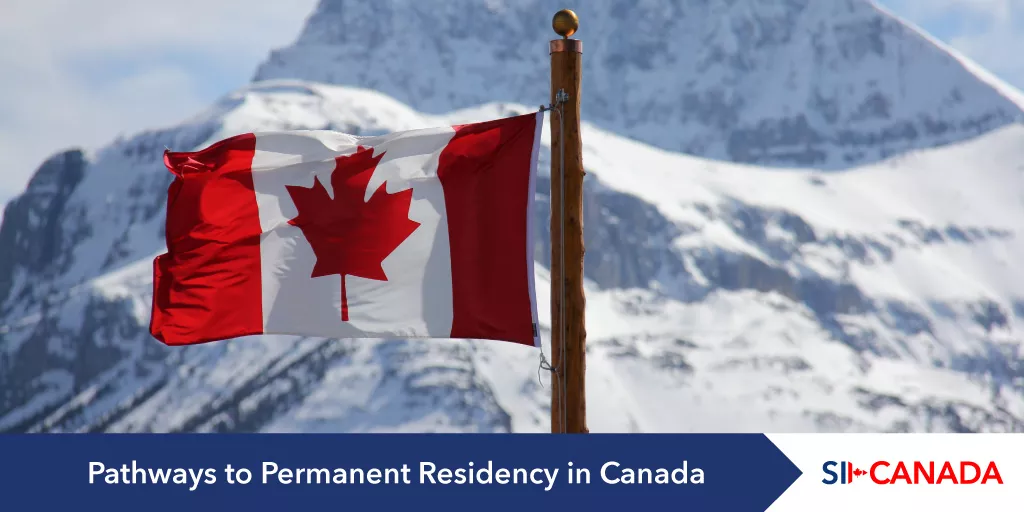Canada is renowned for its world-class education system and welcoming attitude towards international students. Every year, thousands of students from around the globe choose Canada as their preferred destination for higher education due to the universities, courses and quality of life on offer.
One of the significant advantages of studying in Canada is the opportunity it provides to obtain Canadian permanent residence (PR) after completing your studies. This is also one of the primary reasons why thousands of students choose to study in Canada, as when compared to other countries, the Canadian government gives better chances of settling in the country after graduation and some work experience. Obtaining Canadian permanent residence after completing your studies in the country can be an exciting and life-changing opportunity, but it's essential to understand the different pathways available and determine the one that aligns best with your qualifications and goals.
Are you also dreaming of studying and eventually settling in Canada? If so, book a free consultation with SI-Canada today to start your application.

Pathways for Permanent Residence in Canada After International Study
1. Study Permit and Post-Graduation Work Permit (PGWP)
The first step towards Canadian permanent residence is obtaining a study permit to pursue your studies in Canada. Once you complete your program, you may be eligible for a Post-Graduation Work Permit (PGWP), depending on the number of years of your program.
If your study permit is for a course ranging from 8 months to 24 months, then the PGWP will be of the same duration, while on the other hand, if you pursue a degree of two or more years, then you will be eligible for staying back for up to 3 years. The PGWP allows you to gain valuable work experience in Canada, which is crucial for many immigration pathways that you will choose at a later stage.
2. Canadian Experience Class (CEC)
The Canadian Experience Class (CEC) is one of the most popular immigration pathways for international students who have gained skilled work experience in Canada. To be eligible for the CEC, you must have at least one year of full-time (or equivalent part-time) skilled work experience in Canada within the last three years before applying for permanent residence.
Applicants must also demonstrate proficiency in English or French and meet other basic requirements, such as health and security checks. The advantage of the CEC is that it does not require a specific job offer from a Canadian employer, making it an attractive option for recent graduates.
3. Provincial Nominee Program (PNP)
Canada's Provincial Nominee Program (PNP) allows the different provinces and territories of the country to nominate individuals for permanent residence based on their specific economic and labour market needs. Many provinces have particular streams or categories under their PNP that are dedicated to international graduates who have studied in their region. It is worth noting that each PNP stream has its own set of eligibility criteria, but in general, applicants must have completed a post-secondary program from an eligible institution in the province, obtained a valid work permit, and demonstrated the intention to live and work in that province.
4. Express Entry System
The Express Entry system of Canada is a points-based immigration system used to manage applications for permanent residence under three federal economic immigration categories. They include the Federal Skilled Worker Program, the Federal Skilled Trades Program, and the Canadian Experience Class.
Although the Express Entry system is majorly used for other immigration aspirants living and working in other countries; for international students, the Canadian Experience Class (CEC) category is often the most relevant within the Express Entry system, as it provides additional points for Canadian work experience. To be eligible for the CEC through Express Entry, you must meet the work experience requirements mentioned earlier and score enough points in the Comprehensive Ranking System (CRS) to receive an Invitation to Apply (ITA) for permanent residence.
5. Atlantic Immigration Pilot Program (AIPP)
The Atlantic Immigration Pilot Program (AIPP) is a unique immigration pathway aimed at attracting skilled workers and international graduates to Canada's Atlantic provinces, namely Nova Scotia, New Brunswick, Prince Edward Island (PEI), Newfoundland and Labrador.
Under the AIPP, international students who have completed a post-secondary program at a publicly funded institution in one of the Atlantic provinces may be eligible to apply for permanent residence. This program requires a job offer from a designated employer in the Atlantic region.
The Canadian government is trying to get as many immigrants as possible in the current wave of events and keeps coming up with the latest updates on numerous immigration pathways for students and other applicants. You must visit the official website of Immigration, Refugees and Citizenship Canada regularly to be aware of the latest updates and take advantage of the new rules and regulations that come up.














